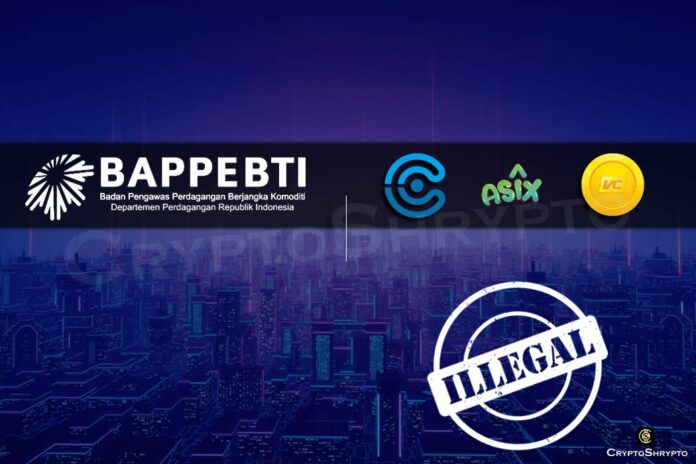With celebrities launching their own NFTs and crypto enterprises and celebrity tokens gain major popularity among young Indonesians. Regulators are stepping in to protect the young investors. The Commodity Futures Trading Regulatory Agency, or BAPPEBTI, is presently urging celebrities to have their projects authorised on the Indonesian legal cryptocurrency list before promoting them.
BAPPEBTI, which is in charge of crypto regulation in Indonesia, advises that just 229 cryptocurrencies are permitted to trade and transact in the country. BAPPEBTI wishes to inform investors that purchasing or trading celebrity-created tokens in Indonesia is not currently legal.
The warning comes from a Twitter conversation that started when new investors started putting money into popular celebrity tokens:
“New crypto assets that are intended to be exchanged in Indonesia should be registered under BAPPEBTI through registered crypto exchanges in Indonesia to be appraised by the Indonesian regulations.” As a result, crypto assets that have not been registered on BAPPEBTI’s list of legitimate crypto assets are not permitted to be traded in Indonesia. “
As of now, most illicit cryptocurrencies have not been penalised or sentenced since the majority of them are in discussions with BAPPEBTI. BAPPEBTI is open to new coins entering the Indonesian market as long as they adhere to the standards and processes for legalisation and are overseen by the agency.
Currently, there is no mention of the government prohibiting these tokens, but rather an invitation for these tokens to be classified as a legal commodity in Indonesia.
BAPPEBTI has also collaborated with its committees, such as the Indonesia Blockchain Association, to assist in building a better environment for cryptocurrency in Indonesia, particularly with the emergence of celebrity tokens. Coinvestasi was successful in obtaining a response from the aforementioned committee on the subject of celebrity tokens.
The statement was made directly by the chairperson of the Indonesia Blockchain Association. She stated:
“Her take on the celebrity token movement in Indonesia is neutral as long as they follow existing restrictions, because many Indonesians have established their own cryptocurrencies over the last several years.”
However, she believes Indonesian developers must grasp that their cryptocurrencies must have value for investors and consumers, as well as something that distinguishes them from other current cryptocurrencies. This is due to their obligation to their token holders and investors. Developers must collaborate to help transform the perception of cryptocurrencies as a scam in Indonesia.
This remark plainly demonstrates that the government wants the best for Indonesian cryptocurrency investors and innovators. It may be inferred that the government of Indonesia supports the growth of cryptocurrencies as long as it is done in a controlled and safe manner.
Rise in crypto adoption in Indonesia
The growing trend of celebrities and influencers collaborating to build and promote crypto ventures has expanded Indonesia’s crypto environment.
According to data, the rise has been exponential, with transaction volumes increasing by more than 100 percent since 2020, primarily due to individual investors. Institutions grew interested as well, as indicated by their involvement in funding and investing in blockchain or crypto-related ventures.
Sinar Mas, a major commercial group, funded the introduction of NanoByte (NBT), a new cryptocurrency with Tokocrypto as a partner.
Nanobyte is a coin produced by an exchange that also intends to incorporate it into the present fiat payment system in Indonesia, connecting with e-money and credit cards. This is to make it easier for investors and holders to utilise their crypto wallets and NBT to pay for their daily necessities.
Another example is BRI Ventures, the venture arm of one of Indonesia’s biggest government-owned banks, which established an accelerator to serve as an incubator for Indonesian blockchain startups seeking to expand abroad.
These initiatives have the potential to spark a chain reaction among Indonesian financial institutions to invest in the blockchain or crypto industry.




